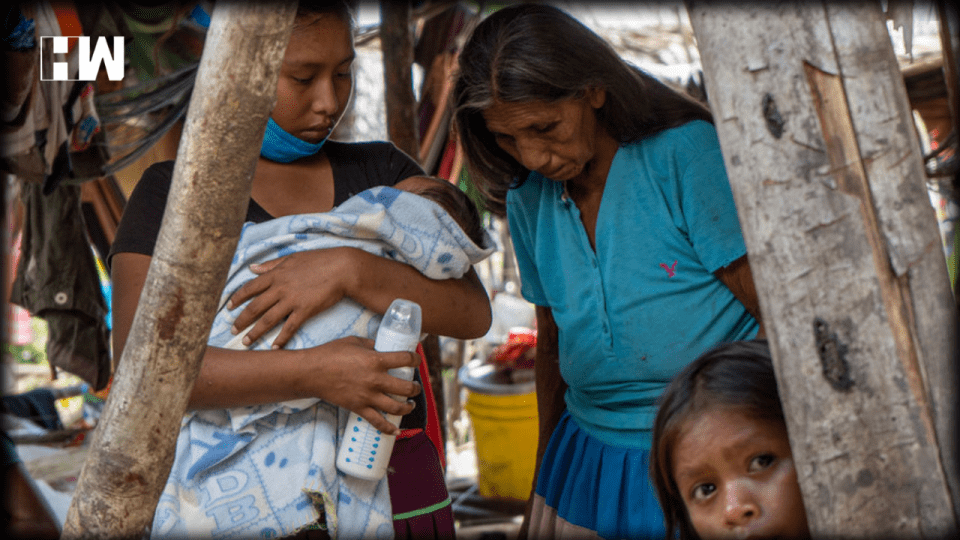One meal a day, no shelter, and no drinking water are only some of the difficult living conditions that indigenous Warao families from Venezuela are facing in remote locations across Guyana, the UN Refugee Agency (UNHCR) has warned.
More humanitarian presence and support from the international community is needed, said on Friday Philippa Candler, UNHCR’s Multi-Country Office Representative in Panama, speaking to journalists in Geneva.
An estimated 24,500 refugees and migrants from Venezuela are living in Guyana, including some 2,500 indigenous Warao.
Some have settled in hard-to-reach areas near the Venezuelan border and others in or around the towns of Mabaruma and Port Kaituma.
Since early 2020, some 250 Warao also found refuge in Anabisi in northern Guyana. More than half of this group are children.
Living conditions
According to UNHCR, these communities have limited access to services and the delivery of aid is impeded by remoteness, lack of transport infrastructure and distances.
Assessments conducted in October and November show mounting needs, aggravated by the economic downturn caused by the COVID-19 pandemic.
Most Warao people have only one meal a day or less. Without formal job opportunities, many are begging, working odd jobs, often in exchange for food, selling handicrafts or depending on humanitarian assistance.
Moreover, most families do not have access to drinking water, relying instead on rivers for drinking, bathing, and defecation.
Last week, UNHCR received reports that one Warao child from the Anabisi community died and several others were hospitalized, reportedly due to malnutrition and diseases related to poor sanitation conditions. Some have been discharged since.
Response
Since 2019, the agency has worked with partners to distribute material assistance, provide shelter and support access to education services to refugees, migrants and members of the host communities.
It also provides counselling, interpretation services and facilitates their access to government services including health programmes and vaccination against COVID-19.
UNHCR is currently delivering food hampers, solar lamps, mosquito nets, water purification tablets provided by the Guyanese Civil Defense Commission, and other basic relief items to some 400 indigenous Warao from Venezuela.
The agency works across 17 countries to respond to the plight of five million Venezuelan refugees and migrants hosted in Latin America and the Caribbean.
To date, the Refugee and Migrant Response Plan to meet the needs of the Venezuelan refugees and migrants and their host communities is only 43.6 per cent funded.
The appeal for next year will be launched on 9 December.
As an independent media platform, we do not take advertisements from governments and corporate houses. It is you, our readers, who have supported us on our journey to do honest and unbiased journalism. Please contribute, so that we can continue to do the same in future.

